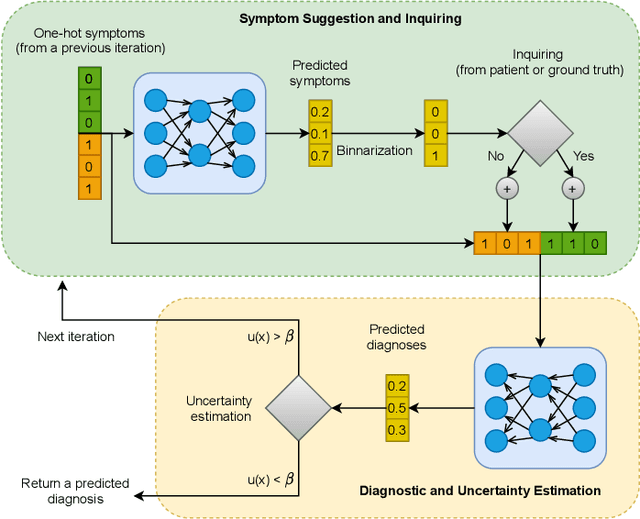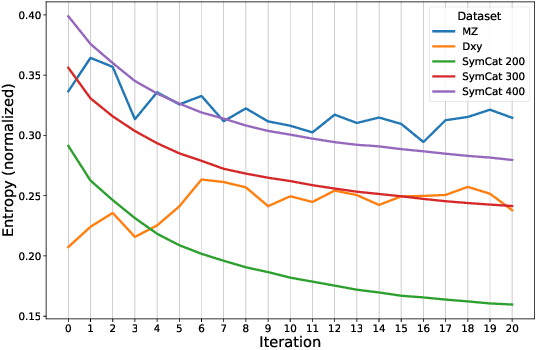NeuralSympCheck: A Symptom Checking and Disease Diagnostic Neural Model with Logic Regularization
Paper and Code
Jun 02, 2022



The symptom checking systems inquire users for their symptoms and perform a rapid and affordable medical assessment of their condition. The basic symptom checking systems based on Bayesian methods, decision trees, or information gain methods are easy to train and do not require significant computational resources. However, their drawbacks are low relevance of proposed symptoms and insufficient quality of diagnostics. The best results on these tasks are achieved by reinforcement learning models. Their weaknesses are the difficulty of developing and training such systems and limited applicability to cases with large and sparse decision spaces. We propose a new approach based on the supervised learning of neural models with logic regularization that combines the advantages of the different methods. Our experiments on real and synthetic data show that the proposed approach outperforms the best existing methods in the accuracy of diagnosis when the number of diagnoses and symptoms is large.
 Add to Chrome
Add to Chrome Add to Firefox
Add to Firefox Add to Edge
Add to Edge